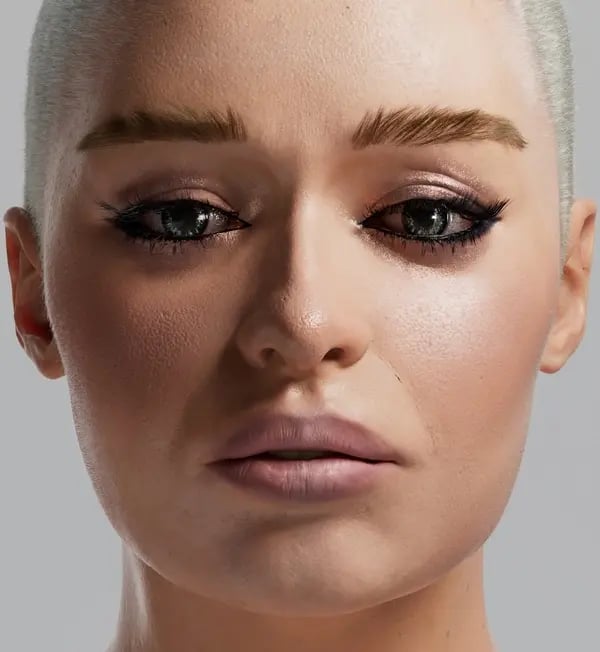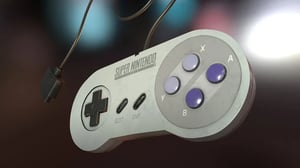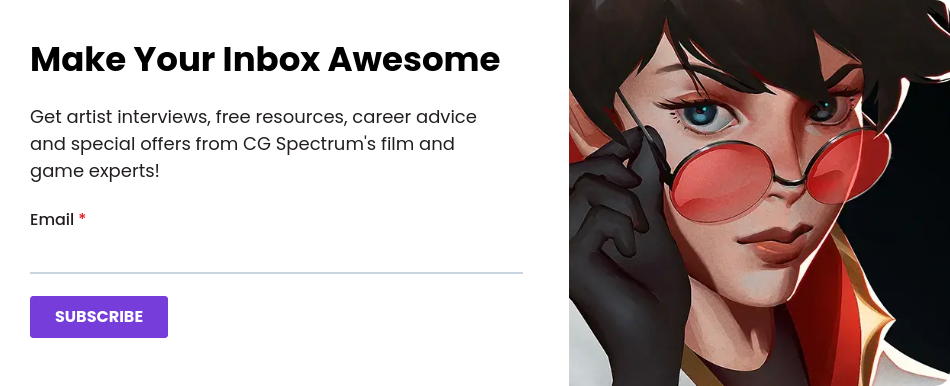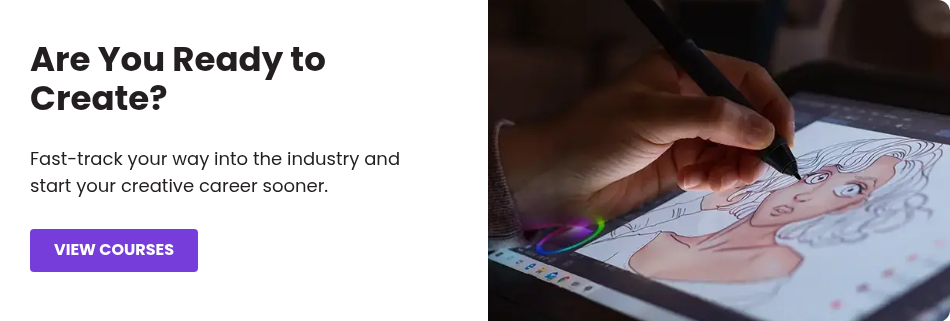Want to become a game artist and help build the visual world of a video game? You will need a specific set of skills that combine high levels of creativity and technical knowledge. We run through some of the top soft and hard skills you'll need to hone if you want to get a job as a game artist, as well as some career options in the video games industry.
What does a game artist do?
A game artist's task is to visualize the creative intent of the game, helping to bring its worlds to life based on a brief outlining the mood, look, and feel of a game. This includes everything from the characters and backgrounds to the menus and user interface. A game artist can also be responsible for creating promotional artwork for a game, as well as any marketing materials.
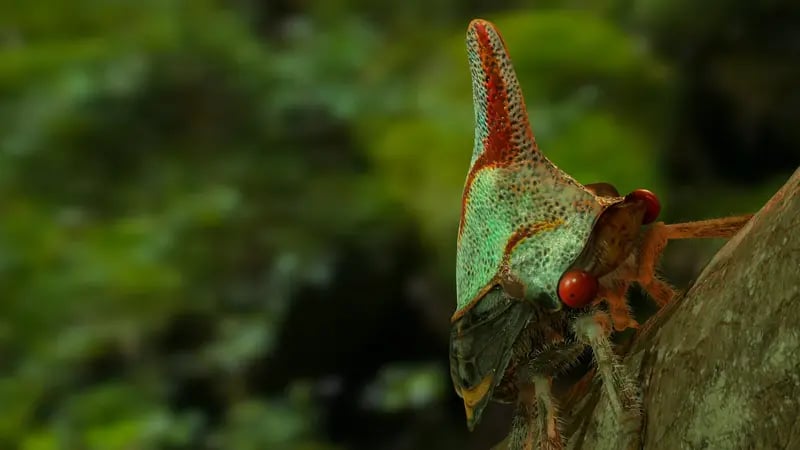
Treehopper by Foundations of Game Art & Animation Course graduate, Noor.
What soft skills does a game artist need?
A game artist requires a passion for gaming, a keen visual eye, and the ability to bring images to life.
An artistic eye
A thorough understanding of visual language will be your base knowledge - shape, space, perspective, lighting, composition, proportion, and balance are innate to the role of a game artist.
Basically, you will need to have a natural affinity for the visual elements of design upon which to build your education and skills. Artists are always drawing, sketching, and expressing themselves through various visual media. Although almost all games are built in a 3D animation environment, a background in 2D design may also be desirable, as this is the traditional basis and origin of all animation.
Ability to work well in a team
During the game development process, game artists will work in game development teams alongside game programmers and game designers. Good communication skills are required to work with teammates operating in different disciplines, as well as an understanding of the pressures of other departments of the production. Problem-solving within these teams is vital, and creatives need to work well with technical departments to achieve the common goals of production.
A strong understanding of human behavior & anatomy
In many ways, game artists need to be keen observers of human behavior (and the world, in general) to be able to replicate them in a virtual environment. As a game artist studying acting and movement may be an advantage, as you may find yourself directing the action within a game.
For the creation of characters, it will be useful to study the muscle and skeletal structures of humans and animals. These will need to be recreated in the movements of the game characters. Facial expressions and emotions may also need to be rendered onto the characters.
Sensitivity towards character behavior will have an impact on user interaction and engagement. Evoking emotion is a strong element of gameplay and is what keeps players returning to the game and aids in immersion into the world of the game.
A vivid imagination
As a game artist, you and your development team are playing god in creating a world or a universe into which players are enticed. Being able to escape into the imagined worlds of games is part of what makes games so desirable to play.
If you are passionate about working in game dev, you will understand the importance of the other-worldliness of video games. You must have a love for building images into moving incarnations and the art of visual storytelling.
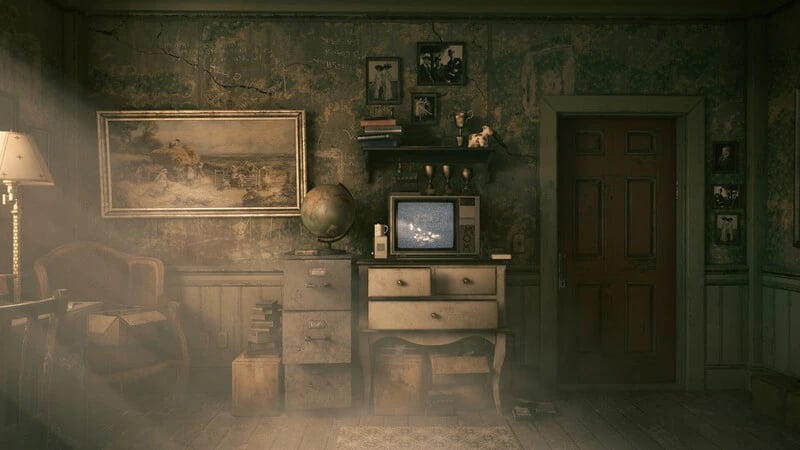
Game art in Unreal Engine by CG Spectrum Mentor Carl Shedd.
What technical skills does a game artist need?
On the technical side, a game artist must have proficiency in both 2D and 3D software. During the course of the game development process, you may be required to render 3D modeling, color theory, illustration, typography, interface design, and level creation, and have the ability to work in vector art style.
Understanding of the production pipeline
It's vital to understand the video game pipeline and know the right steps for each task — from saving work in the right format, resolution, and size to file naming conventions. Archiving and image library maintenance are the logical aspect of the game artist requiring left-brain analytical skills. This is simply because game development can be such a huge undertaking on big projects and displays the artist’s professional habits, which are invaluable to the production process.
Proficiency in 2D & 3D software
Game artists are expected to be proficient in 3D animation software platforms and have the ability to translate 2D images and concept art into 3D models. All game artists will be familiar with the Adobe creative suite, including Photoshop, Illustrator, and Flash, as well as 3D-based software like Maya and Blender. Working knowledge of ActionScript and/or FLEX would also be advantageous.
Floating island by Foundations of Game Art & Animation Course student Tatiana.
There are a variety of areas that a game artist can specialize in, depending on their interests and strengths. A career as a game artist offers many possibilities. Game studios employ artists to fill a range of functions including:
A career as a game artist can be enriching and fulfilling. So to summarize, what skills do you need to be a game artist?
It is not for everybody, but if it is your niche, it can lead to boundless creativity and expression within a game environment.
CG Spectrum's Foundations of Game Art & Animation Course will prepare you to enter the video game industry as a game artist! In nine months you'll learn the basics of creating awesome game art and animation, guided by mentors who are game industry professionals with a wealth of knowledge of the craft and connections in the gaming world.
